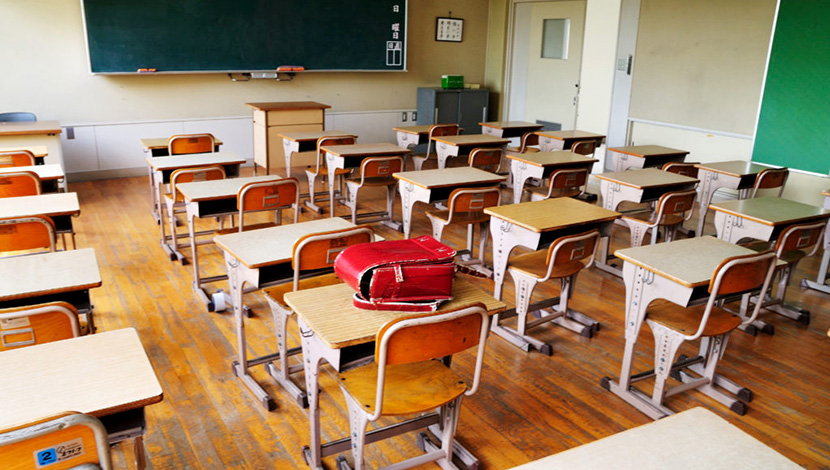Publisher's note: This post appears here courtesy of the Carolina Journal, and written by Amy Cooke.

A save-the-system-not-the-student mentality is at the center of the "
left-leaning" N.C. Association of Educators'
lawsuit to thrust a dagger into the heart of our state's school choice options.
"Vouchers for private schools are an affront to a state that has a long and cherished history of public education," the
NCAE posted to Twitter. Those "vouchers," which the union bosses find so offensive, are the
wildly popular Opportunity Scholarship program — a program that provides $4,200 in funding for more than 9,500 low-income and minority students to help pay for a private school education that best meets their needs.
Opportunity Scholarship parents and students have survived this kind of attack before. They spent nearly two years fighting the NCAE in court after the Republican legislature passed the program in 2013. The N.C. Supreme Court
reaffirmed it in 2015 with a 4-3 decision to the
joyful cheers of grateful families.
Fast forward to 2020. The makeup of the N.C. Supreme Court is radically different than 2015. Led by Chief Justice Cheri Beasley, who authored one 2015
dissenting opinion and joined another, the court now is far left and likely to be sympathetic to the NCAE's monopoly position over public K-12 education.
To make matters worse, it's unlikely that low-income and minority students — 47% of whom are black — will receive any help from Democrat Gov. Roy Cooper. He
openly opposes Opportunity Scholarships, claiming they cost the state money, when in reality the program saves taxpayers millions.
Interestingly, while Cooper wants poor black students to remain in public schools that fail them, he
sent his own kids to an expensive private school. I don't blame the governor for wanting the best education for his own children. My parents did the same thing for me, although our family circumstances were much closer to those of today's Opportunity Scholarship families.
I'm the youngest of seven children. My mother stayed home while my father was a Marine Corps fighter pilot. Even though my mother was a debutante from a family listed in the Social Register and my father graduated from law school, we weren't rich — at least not financially.
We never owned our home, and I was in middle school before I rode in a new vehicle registered to my parents. A vacation was a day's drive to the cabin of a family friend or a camping trip along a local river. Had free and reduced-price lunch existed when we were growing up, my family probably would have qualified.
I was a sophomore in high school when my parents considered my request to move to an academically challenging school. The big question was how we would accomplish the switch. We had no school choice options, but if I had the courage to make the change, my mother was going to make it happen.
That's when my stay-at-home mom took an hourly job as a cook at the local middle school to pay my tuition for an all-girls Catholic college preparatory school for my junior and senior years.
All the girls wore the same uniform, so my new teachers had no idea about my family's financial situation. There were no excuses. They expected every student to meet their very high standards. Every one of my classmates went on to college. Unlike me, most of them came from families blessed with the means to send their daughters to any institution of higher learning.
Fortunately, the college I could afford was also the best public journalism school in the country. Working full time and with help from grants, scholarships, and student loans, I attended the University of Missouri-Columbia. Later, I went on to graduate school at the University of Northern Colorado. Now, I serve as CEO of the John Locke Foundation, one of the most well-respected state-based think tanks that proudly advocates for choice in education, and as publisher of Carolina Journal.
I had to become a mother myself truly to appreciate the scope of what my mom did for me and the impact it had on my life.
Would I have gone to college and had professional success if I hadn't switched schools? Maybe, but there's no way to know. What I do know is those two crucial years put me on a path where success was expected. My mother's commitment to my choice in education got me there.
I can never repay my mother for the gift she gave me, nor did she ever expect it. But I promised her before she died that I would pay it forward because I can personally attest to the importance of every child, regardless of socio-economic background, ZIP code, or skin color, having access to the school that best meets his or her needs. Yes, sometimes that school may be private, and it may be religious.
If this lawsuit against Opportunity Scholarships prevails in Chief Justice Beasley's far-left Supreme Court, it will be to save the system rather than students. Those responsible will be on the wrong side of history.
Amy Cooke is president and CEO of the John Locke Foundation.
























